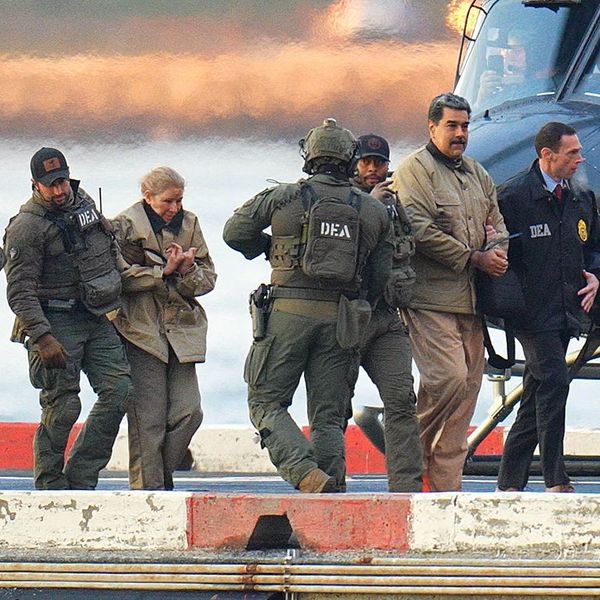Bottom Line Up Front
- Shortly after being released from prison, Seuxis Pausias Hernandez, a former commander of the Revolutionary Armed Forces of Colombia (FARC) was sworn in as a member of Colombia’s congress.
- The transformation from rebel leader to politician was enabled by a 2016 accord between Bogota and the Marxist insurgent group.
- There are several other examples of former leaders of rebel groups attempting to make the transition to politician, including Nelson Mandela and Gerry Adams.
- There is a significant risk of recidivism, where insurgent groups that have claimed to have demobilized go back to fighting.
Shortly after being released from prison, Seuxis Pausias Hernandez (aka Jesus Santrich), a former commander of the Revolutionary Armed Forces of Colombia (Fuerzas Armadas Revolucionarias de Colombia or FARC), was sworn in as a member of Colombia’s congress. FARC representatives have taken seats in the government under the auspices of the Common Alternative Revolutionary Force. The appointment of Hernandez to Colombia’s parliament is especially controversial given recent allegations by the U.S. that despite his claims of demobilizing and leaving behind his post as a member of FARC’s General Staff, he has continued to participate in illicit activities, including drug trafficking.
The transformation from rebel leader to politician was enabled by a 2016 accord between Bogota and FARC, a Marxist insurgent group, which waged a nearly five-decade-long violent movement against the Colombian government. The peace deal was signed in late 2016 by Colombia President Juan Manuel Santos and FARC leader Rodrigo Londono, also known as Timochenko. An earlier referendum outlining the contours of a peace deal was rejected by voters, leading to the revised agreement. Overall, the insurgency has resulted in the deaths of over 220,000 people, with millions more displaced. The destabilizing effects of the insurgency have negatively impacted Colombia's economy and given the country a reputation as a hub of transnational criminal activity, especially cocaine trafficking.
This is hardly the first example of a former leader of a rebel group attempting to make the transition to politician. Successful examples include Nelson Mandela of the African National Congress in South Africa and Gerry Adams, a former commander of the Provisional Irish Republican Army (PIRA) in Northern Ireland, who went on to have a long career with Sinn Fein, the PIRA’s longtime political wing. The move is a gamble however and often fraught with risk, particularly for incumbent governments that agree to allow ex-rebels to join electoral politics. For every successful transition, examples of failure abound, including Yasser Arafat of the Palestine Liberation Organization (P.L.O.). The United States is currently attempting to lure the Afghan Taliban to the negotiating table in a bid to end the nearly twenty-year war against the insurgents. Many analysts remain skeptical that the Taliban genuinely desire peace and see negotiations as a ploy to wait out U.S. forces until they are withdrawn entirely from Afghanistan.
There is a significant risk of recidivism, where insurgent groups that have claimed to have disarmed, demobilized, or decommissioned go back to fighting. When this happens, it reflects poorly on the government that took the risk of inviting the rebels into a power-sharing arrangement. There is also the risk that hardliners within the insurgency that are opposed to any negotiations or the political process as a whole will form violent splinter groups and continue fighting. Historically, some terrorist groups have used the promise of negotiations as a feint to rest, rearm, and recuperate, only to wage a new offensive when peace talks inevitably collapse. Throughout Colombia, many civilians and politicians have been critical of the 2016 accord, describing it as 'too soft' on the FARC, especially considering some of the crimes the group’s members have committed, including murder and drug trafficking. The peace deal made accommodations for the FARC to gain ten seats in parliament.










